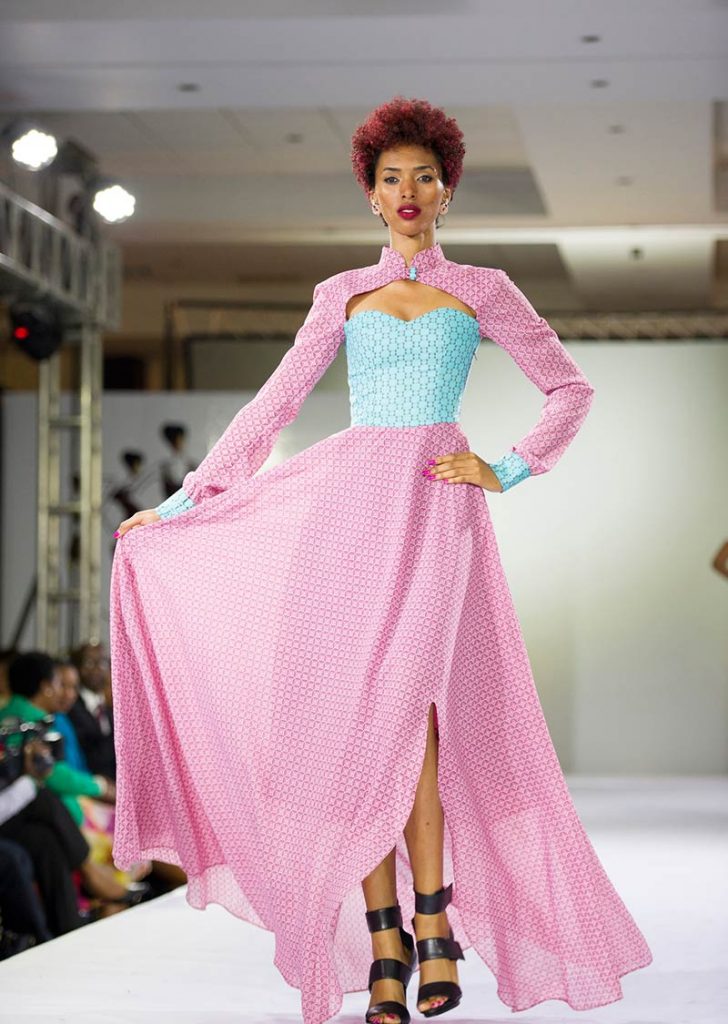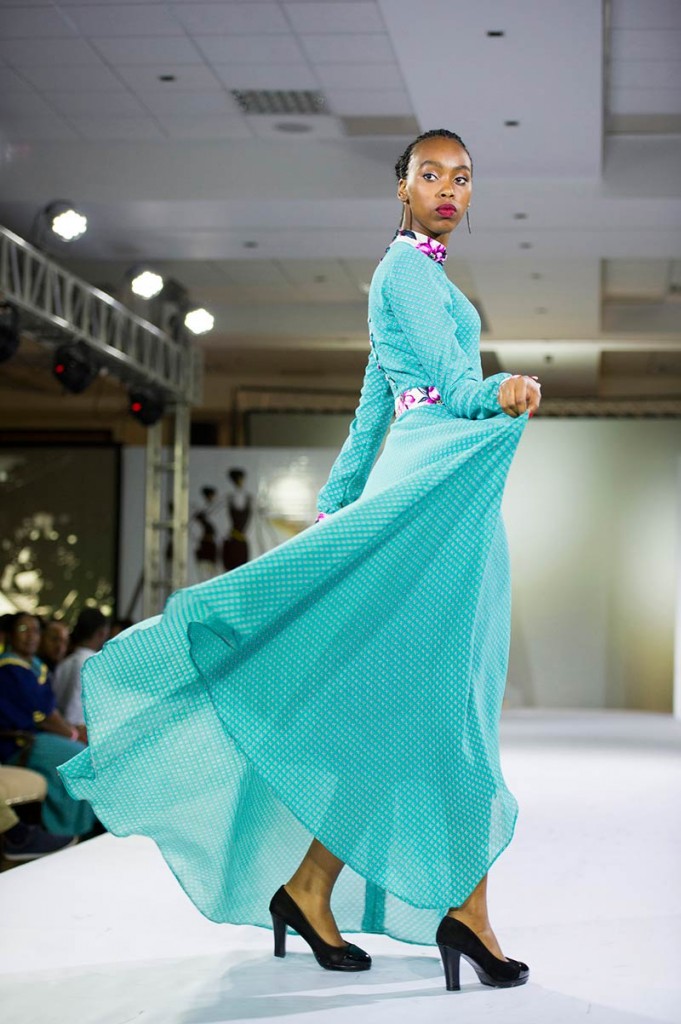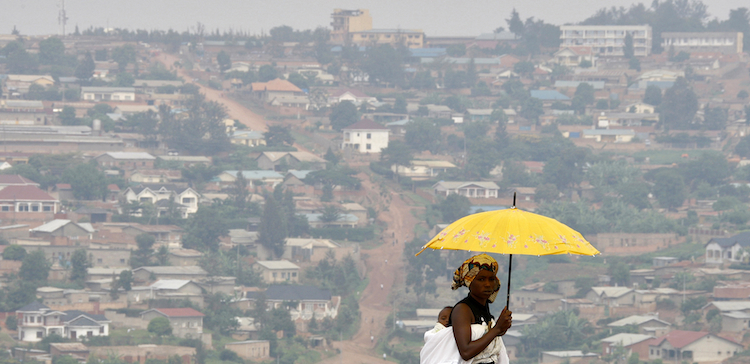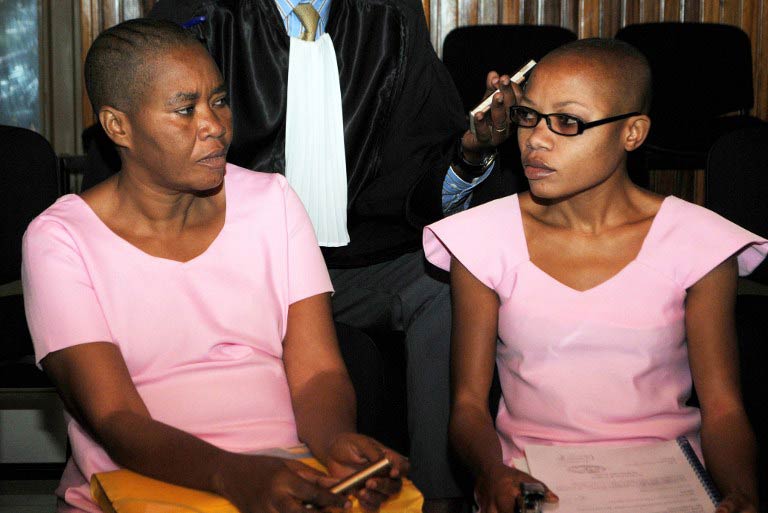It is normally the catwalks of Lagos and Johannesburg grabbing the limelight, as African fashion industry grows in stature around the world. But the Rwandan capital put in a bid for style glory at the weekend with the launch of the second annual Kigali fashion week.
Designer Sonia Mugabo, who lost grandparents, cousins, aunts and uncles and friends in the genocide nearly 20 years ago, was one of 10 local designers whose work was showcased at Friday night’s show with help from the organisers of the New York fashion week.
Although Rwanda does not have a fashion school, Mugabo says the tragic history of her family has made her more determined to follow her desire to be a designer.
“When I was doing graphic design in college, my parents asked what is she doing?” says the 23-year-old, who studied in the US and interned at Teen Vogue. “Fashion is a luxury here, not everyone can afford to be fashionable and our culture is very conservative so people think it’s too showy. But I knew that’s what I wanted to do with my life.
“I think people here don’t understand art as a whole concept. They don’t know what art can do for a country.”
Mugabo and her friend Candy Basomingera (30) launched their women’s range Afrikana Exquisiteness in August.
LDJ Productions, the company that runs New York fashion week, believes Rwanda it has the potential for a strong fashion industry, after the country was recently ranked as the third easiest place to do business in sub-Saharan Africa.
It has provided technical support and training for Kigali fashion week. “It’s not about giving money for us, it’s about giving our time and expertise,” says LDJ chief Laurie DeJong, who’s also worked on fashion weeks in Miami, Toronto, Los Angeles and Mumbai.
“The talent here, no one’s tapped into it. But the designers are so serious and dedicated and so enthusiastic. They really want to learn more than anything.”

For the past two years DeJong has mentored self-taught designer Colombe Ituze Ndutiye, who launched her INCO icyusa label in 2011. Ndutiye’s pieces, which include denim and cotton dresses and skirts teamed with traditional accessories, are made with the help of genocide widows through Canadian initiative Centre César.
“When I started the fashion industry was not there, people were confused,” says the 25-year-old. “Now there’s a lot of awareness.”
Friday night’s show featured Mugabo and Basomingera’s creations, which the former described as “vintage and Victorian-inspired”.
“My pieces are fully covered because I don’t feel like a woman should have to reveal too much to be beautiful,” says Mugabo, who is hoping to find local shops to stock her designs but also plans to sell online.

LDJ is also helping to build an arts school in Rwanda with local firm House of Fashion, which was set up to develop the Rwandan industry. But its chief executive, John Bunyeshuli, also has his sights on Rwanda’s neighbours. He hopes to stage Burundi’s first fashion week next year in the capital Bujumbura.
Amy Fallon for the Guardian




